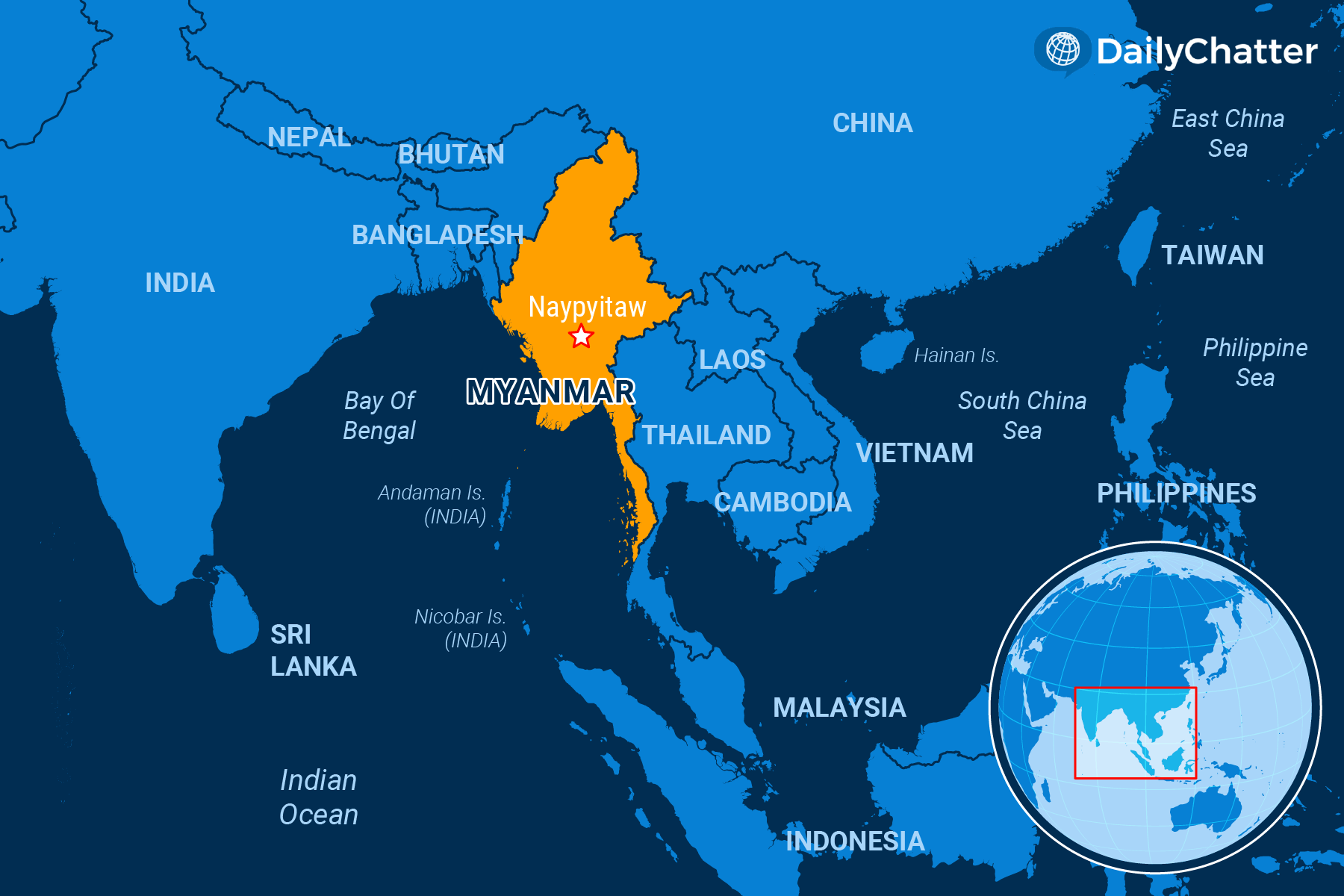NEED TO KNOW
Playing Charades
MYANMAR

Two years ago, Myanmar’s generals staged a coup that ousted the Southeast Asian country’s civilian leaders, including Nobel Peace Prize laureate Aung San Suu Kyi. Recently, in a show of force to prove that he is firmly in control, Prime Minister Senior Gen. Min Aung Hlaing rode on a horse in a military parade.
But, as Sky News wrote in a recent exposé, the display didn’t necessarily impress the Myanmarese, many of whom know that the junta faces accusations of war crimes and genocide, while the economy is struggling under international sanctions.
Rebels who oppose the junta, moreover, have stepped up their attacks. Myanmarese jets recently pounded rebel positions near the Indian border, raising fears that the violence could escalate, Al Jazeera noted. The country also faces a humanitarian crisis involving the ethnic Rohingya Muslim community. Myanmarese officials are largely Buddhist.
A number of ethnic groups in Myanmar recently banded together, for instance, to file charges in Germany of genocide and other atrocities against Myanmarese military officials, the Guardian reported. Genocide allegations involving the country’s treatment of the Rohingya are now pending in the International Criminal Court, too.
Myanmarese activists had to go to a German court because they don’t trust their junta-run judiciary. A court recently found Aung guilty of corruption, for example, and sentenced her to seven years in jail. Her defenders said the conviction was absurd.
“From start to finish, the trumped-up cases against Aung San Suu Kyi have been politically motivated, unfair, and completely lacking in anything resembling transparency,” said Amnesty International’s regional director Meg de Ronde in a statement. “The same goes for the charges against the thousands of others languishing behind bars in Myanmar’s notorious prisons and interrogation facilities across the country.”
Hlaing is now planning to give more power to acting President U Myint Swe, a former general who is Hlaing’s puppet, the Irrawaddy, a Thailand-based dissident Myanmarese publication, said. In this way, Hlaing will retain power over the country even as the emergency military rule expired just at the end of January. Now, the country is expected to prepare for elections later this year because Myanmar’s military-drafted constitution dictates that elections must be held within six months of the end of emergency rule.
Still, such a move might quiet foreign critics – for better or for worse – if civilians really do take some control, The Diplomat countered.
However, on Tuesday, Myanmar’s junta said the country had “not returned to normalcy” after its coup, casting doubt over plans for elections and ending the state of emergency, Agence France Presse reported. The country is bracing for an announcement on Wednesday as to its future governance.
Now, observers are wondering how the drama will end. The rebels aren’t standing down, the diplomatic isolation is growing worse and the world economy is becoming tougher, making conditions harder for the junta to try to retain control. The headline of a Bloomberg Opinion column described Myanmar as “a [potential] failed state in the heart of Asia [that] benefits no one.”
American, French, Indian and Japanese firms are supposedly giving the junta support in the form of materials for military production, the BBC noted. If that support stopped, their grip on power might weaken.
In the meantime, expect more bloodshed in the jungles and posturing in the capital of Naypyidaw.
To read the full edition and support independent journalism, join our community of informed readers and subscribe today!
